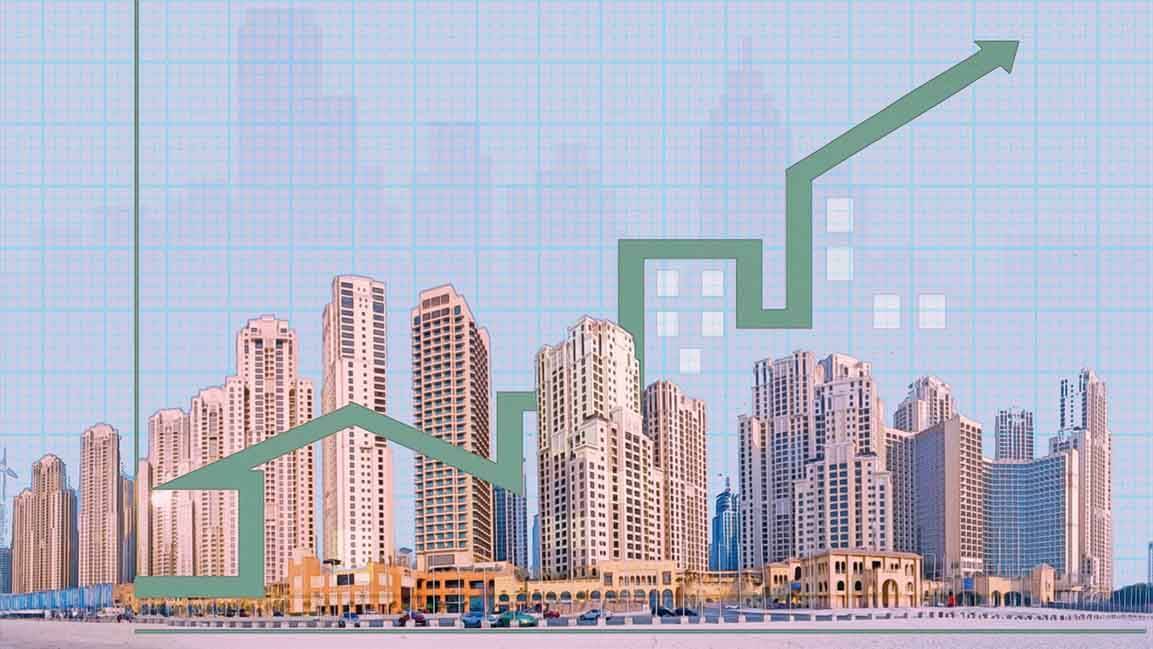
In Dubai, snapping up off-plan property means committing to a real estate project before construction wraps up,or even begins. Instead of walking through a finished space, buyers rely on architectural drafts, mockups, and the developer’s detailed briefs.
This route has drawn serious attention, especially from seasoned investors hunting for capital appreciation as construction progresses. Early entry often translates to lower price points than completed builds. On top of that, buyers usually get to weigh in on layouts, internal finishes, and, depending on timing, even which direction their windows face.
The contrast boils down to timing, pricing, and design freedom. Off-plan units are purchased mid-construction, or before a single brick is laid, generally at more accessible price levels. These properties offer room for custom tweaks, from interior materials to configurations. In contrast, turnkey homes come complete, with zero room for alteration and a steeper price tag reflecting their immediacy.
Buying off-plan in Dubai isn’t a gamble if it’s done right. Key factors include sticking with well-established developers, locking down a transparent payment schedule, confirming your funds are stored in escrow, and verifying all documents through legal professionals. Regularly checking in on construction status is non-negotiable, it ensures promises on paper match what’s happening on-site.
This approach appeals to buyers aiming to secure forward-thinking designs at entry-level prices. Payment structures are staggered, often over multiple phases, making them more manageable than lump-sum purchases. It’s also a route that lets you shape the interior to suit your preferences, from floor plans to fixtures, while ensuring your new space aligns with current architectural standards.
This setup kicks off with a mere 1% down payment on the total property value to reserve the unit. That’s followed by structured installments as the construction progresses, with the balance due at handover. It’s a low-barrier entry point that appeals to those looking to secure a future property without committing a large sum upfront.
In this case, 60% of the property’s value gets paid incrementally throughout the construction phase. The remaining 40% is settled upon completion. It’s a strategy designed to ease financial strain by distributing the cost during the build, avoiding the pressure of front-loading or back-loading the entire sum.
This version pushes 70% of the payments into the construction phase and saves the final 30% for the end. It’s another way to align financial planning with project milestones, letting buyers pace their investment and reduce the post-handover burden.
Securing a mortgage for an off-plan property in Dubai hinges on three key variables: the developer, the build’s progress, and the policies of the mortgage institution. Not all lenders will back a pre-completion property, so consulting with a finance expert is recommended before diving in. Certain banks step in only after construction hits a specific threshold.
A post-handover setup lets buyers move in while still finalizing payments. Typically, around 80% is covered during construction, with the rest due after keys are handed over. It’s a way to avoid massive payments all at once, distributing the remainder over a fixed term, often spanning one to five years.

For investors looking to tap into future market growth, it’s often a solid move. Pre-completion pricing tends to sit lower than finished properties, boosting long-term returns. Developers frequently present structured payment sequences, and there’s usually room for layout customizations, both appealing angles for those chasing capital gain.
Dubai’s property laws enforce transparency and buyer protection through mandatory registration with the Dubai Land Department. Projects must adhere to specific legal and financial frameworks, and developers are subject to monitoring by local authorities. Escrow requirements ensure funds are tied strictly to the project for which they’re collected.
To stay informed, head directly to the Dubai Land Department’s official website, where construction status and developer updates are frequently posted. Many developers also keep active update portals on their own sites, offering construction photos, timelines, and unit-specific progress breakdowns.
Dubai’s off-plan catalogue includes an ever-evolving line-up. Project diversity spans various city zones, catering to different residential needs and investment goals.
Yes, Dubai’s market is open to international buyers. Individuals from India, Russia, China, Pakistan, and Europe have all made significant inroads. Certain zones are classified as freehold, meaning foreigners can secure full ownership rights. Districts like Palm Jumeirah, Dubai Marina, Downtown, and Dubai Hills see substantial foreign interest.
Developers occasionally roll out limited-time promotions tied to the holiday season. These can include reduced down payments, extended installment windows, or incentives like complimentary upgrades. Each offer is time-bound and varies between developers, so acting promptly is key.
Several developers are expected to release tailored offers as 2025 kicks off. Emaar, Damac, and Azizi are among those likely to unveil new payment plans or discounted initial rates to attract buyers in the first quarter.
Dubai delivers competitive rental returns, zero property taxes, and a legal framework designed to protect ownership. Add to that its high-grade infrastructure and globally connected transport hubs, and it’s clear why real estate investment continues to draw attention. Whether for rental yield or long-term growth, Dubai’s property market holds substantial financial promise.
This site is protected by reCAPTCHA and the Google Privacy Policy and Terms of Service apply.